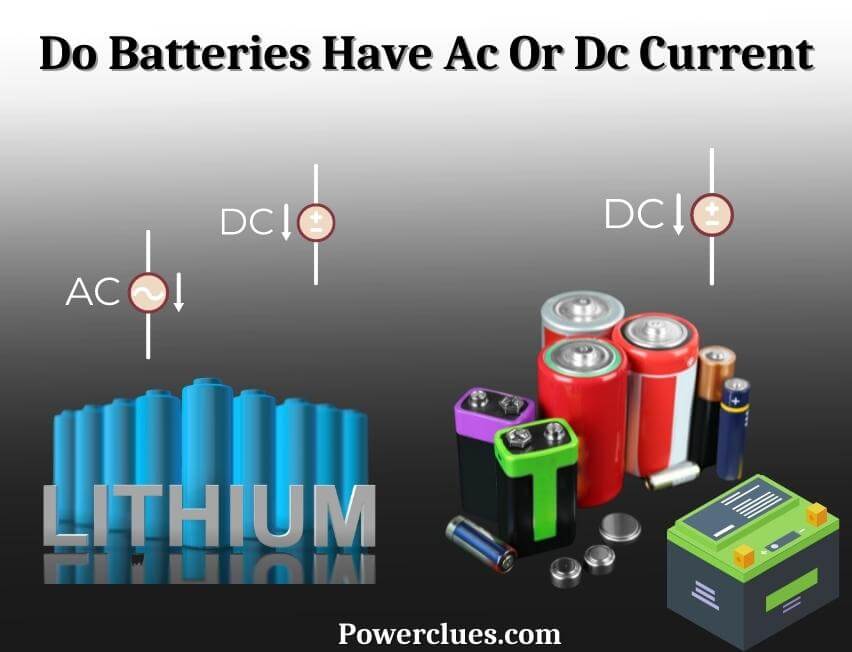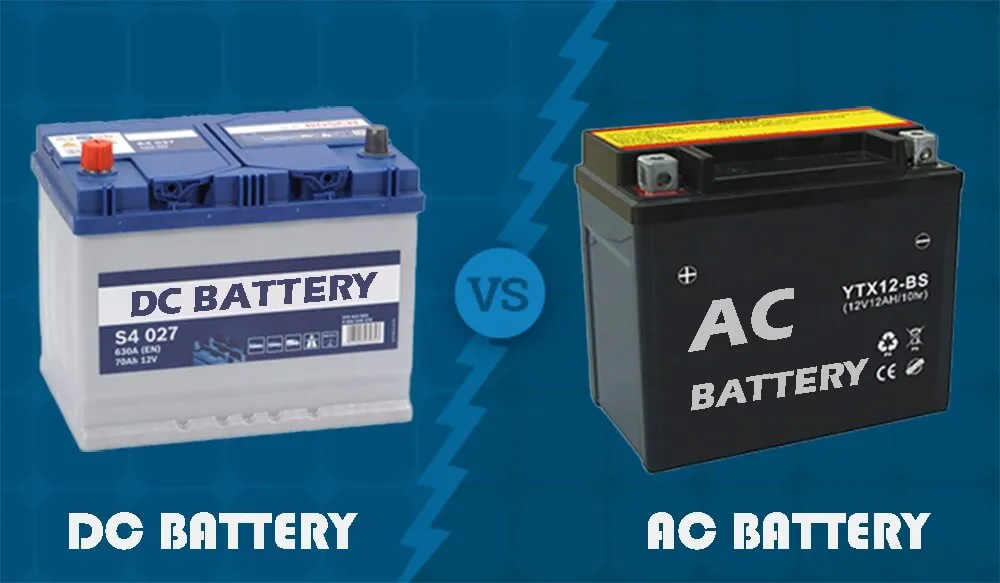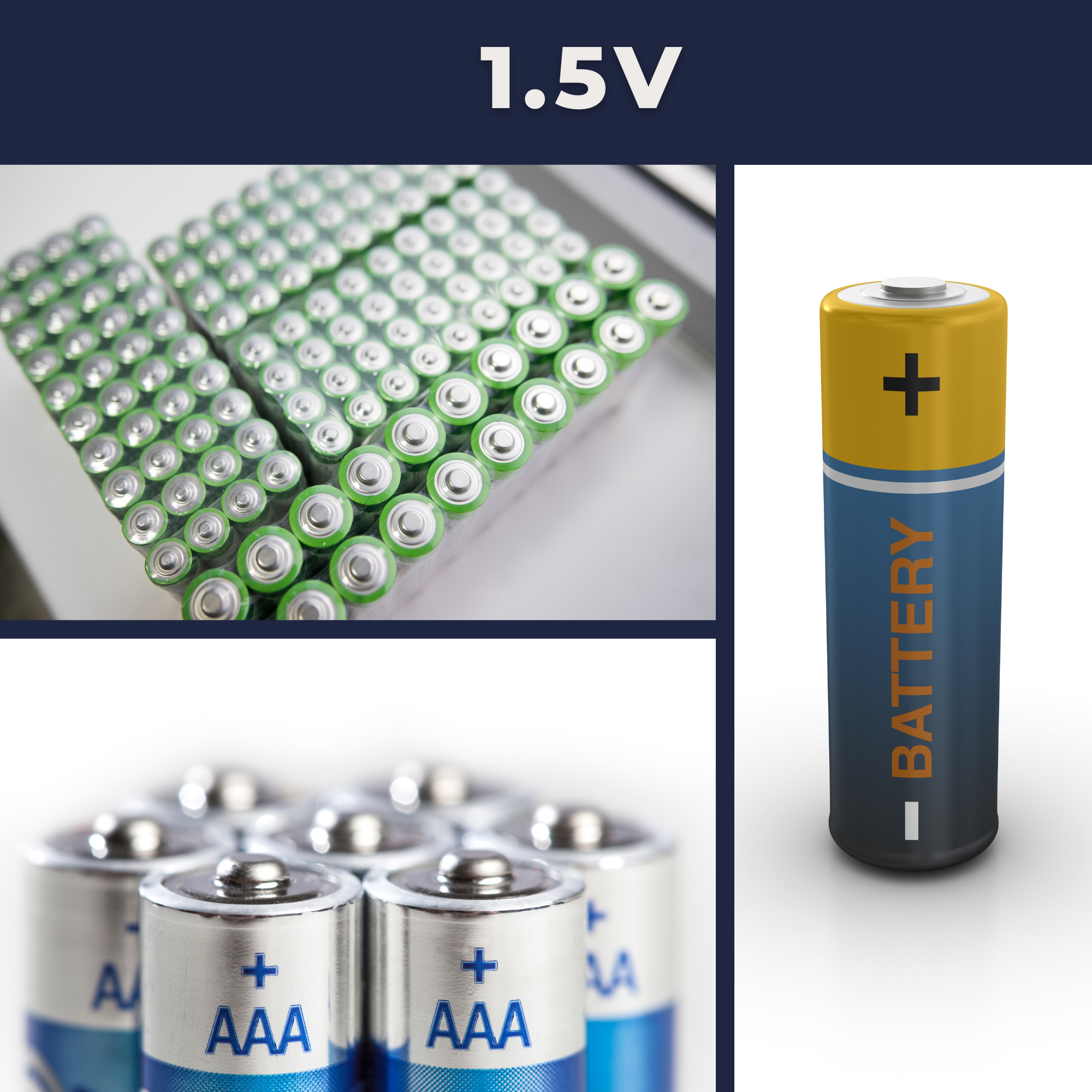Unbelievable Info About Are 1.5 V Batteries AC Or DC

What Does Ac And Dc Mean In Electricity At Indiana Houlding Blog
Demystifying 1.5V Batteries
1. What's the Buzz About Battery Power?
Ever wondered what's actually flowing inside those trusty 1.5V batteries powering your remote control or kids' toys? Are we talking about the alternating current (AC) that comes out of your wall socket, or the direct current (DC) that seems to be the go-to for portable electronics? Well, buckle up, because we're about to dive into the electrifying truth about 1.5V batteries. And don't worry, it's not as shocking as it sounds!
Think of it this way: AC is like the ocean tide, constantly changing direction, while DC is more like a steady stream, flowing in one consistent direction. This difference is key to understanding what makes batteries tick. And let's be honest, who hasn't been curious about the magic inside these little powerhouses?
Seriously though, understanding this difference is crucial for anyone dabbling in electronics or just trying to figure out why some devices need an adapter and others don't. Plus, it's a great conversation starter at parties... maybe. Okay, probably not, but you'll know the answer!
So, before we short-circuit your brain with too much technical jargon, lets get straight to the point. What kind of current do 1.5V batteries provide? Let's find out!

The Definite Verdict
2. DC is the Name of the Game
Here's the scoop: 1.5V batteries are a prime example of direct current (DC) power sources. Plain and simple! They provide a steady, unidirectional flow of electrons from the negative terminal to the positive terminal. Think of it like a one-way street for electrons; no going back, only forward!
This consistent flow is what makes them perfect for powering devices that require a stable and predictable source of energy. Imagine your remote control trying to switch channels if the current was constantly changing direction like AC. Chaos, right? No more binge-watching your favorite shows!
The magic behind this DC output lies in the chemical reactions happening inside the battery. These reactions force electrons to move in a single direction, creating that sweet, consistent DC power. It's like having a tiny, controlled chemical factory in your hand, constantly churning out electrons.
So next time you pop a 1.5V battery into a device, remember you're harnessing the power of a tiny, electron-pushing machine that delivers a steady stream of DC goodness. Pretty cool, huh?

What Is A Dc Battery TYCORUN ENERGY
Why DC for Portable Devices? The Benefits Explained
3. Portability and Predictability
Why are DC batteries the reigning champs of the portable electronics world? Well, there are a few solid reasons. First, DC is much easier to store and manage in small, self-contained units like batteries. Can you imagine lugging around an AC generator every time you wanted to listen to your MP3 player? No, thanks!
Second, many electronic components are designed to operate specifically on DC power. Things like LEDs, transistors, and integrated circuits all prefer the consistent, unidirectional flow of DC. Trying to feed them AC would be like trying to fit a square peg in a round hole — it just wouldn't work.
Third, DC power is more predictable and easier to control. This predictability is crucial for ensuring that your devices function reliably and consistently. You don't want your phone suddenly changing its brightness levels because the current is fluctuating, do you?
Essentially, DC power is the perfect match for the needs of portable electronics: it's compact, compatible, and controllable. It's the power source that keeps our mobile world moving, one battery at a time.

AC vs. DC
4. Understanding the Differences
Since we're on the subject, let's quickly revisit the key differences between AC and DC. Alternating current (AC), as the name suggests, is current that periodically reverses direction. It's the kind of power that comes out of your wall socket and is used to power larger appliances like refrigerators and washing machines.
Direct current (DC), on the other hand, flows in one direction only. It's the kind of power provided by batteries, solar panels, and rectified AC power supplies (like the ones in your phone charger). DC is generally used for smaller, portable devices that require a stable and predictable power source.
AC is typically used for transmitting power over long distances, as it can be easily stepped up or down using transformers. DC is more efficient for powering electronic devices and is less prone to energy loss over short distances.
In a nutshell, AC is like the power grid's superhighway, while DC is the local road that delivers power to your individual devices. Both are essential for our modern lives, but they serve different purposes.

Is A Car Battery AC Or DC? Here All You Need To Know Motor Vehicle HQ
FAQ
5. Clearing Up the Confusion
Okay, time for some frequently asked questions! Because let's be honest, batteries can be a bit mysterious sometimes.
6. Q
A: Absolutely! Devices called inverters can convert DC power from batteries (like those in your car or a solar panel system) into AC power. This allows you to run AC-powered appliances in situations where you only have DC power available. It's like having a portable AC outlet!
7. Q
A: Spot on! Many power adapters are bulky because they contain transformers and other components needed to convert AC power from the wall outlet to DC power that your device can use. The bigger the power output required, the bigger (and sometimes bulkier) the adapter needs to be.
8. Q
A: Yes, all batteries produce DC (Direct Current) power. It's how they're designed to work, using chemical reactions to generate a one-way flow of electrons. No AC shenanigans here!

The Final Spark
9. Wrapping Things Up
So, there you have it! 1.5V batteries are undeniably DC power sources. They provide a steady, reliable flow of electrons that keeps our portable devices running smoothly. Understanding the difference between AC and DC power is essential for anyone who wants to make sense of the world of electronics, and it will definitely impress your friends at trivia night! (Okay, maybe not, but you'll still be smarter!)
Remember, next time you're reaching for a battery, you're grabbing a tiny powerhouse of DC energy, ready to bring your device to life. And that, my friends, is electrifying!